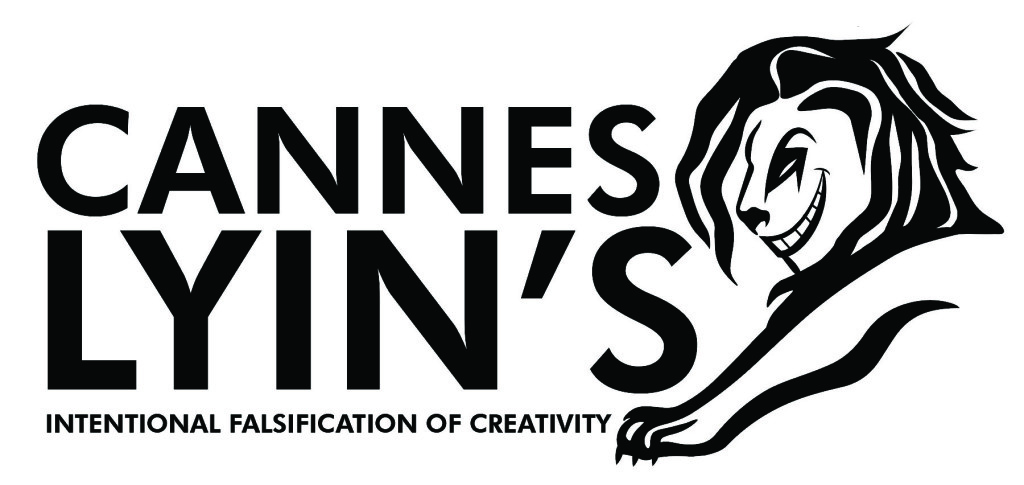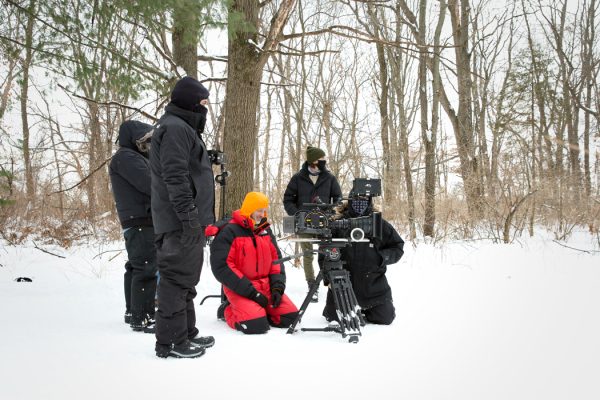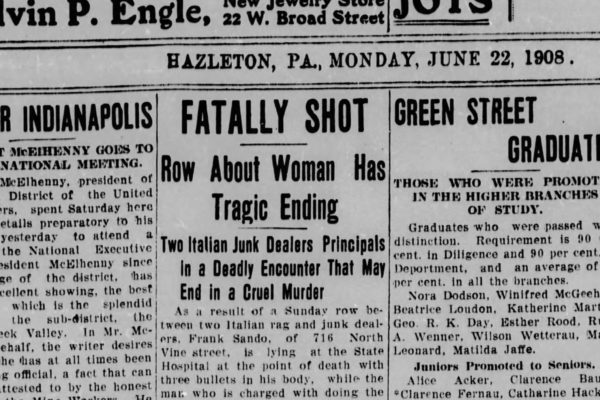
. . . in the advertising business is a subject much discussed, debated, argued and even, sometimes, ridiculed.
On the one hand, advertising is a collaborative medium. Many, many – many – people touch the work between the raw idea and the finished product. Scores of professionals – one way or the other, for good, bad or in between – influence what it looks like, what it sounds like, where it shows up and who sees it.
On the other hand, advertising follows a relatively Darwinian business model. Advertising agencies that reliably produce great advertising – by which I mean noticeable, meaningful, memorable work with a documented positive effect on a client’s business – want the world to know who created that great advertising. Because there’s money to be made from other clients looking for noticeable, meaningful, memorable work.
Likewise, advertising people want the benefits of this relatively Darwinian business model: Promotions, raises, bonuses, public acclaim, trophies cluttering their desks and job offers crowding their inboxes. To be known as one who reliably delivers big ideas and high quality finished product (that makes a difference for a client’s business) is to be a valuable commodity on the advertising job market.
Sadly, however, advertising is a business where who gets the credit doesn’t always go where one might expect. For individuals and agencies alike.
In this week’s advertising agency news, a Bay Area firm called Butler, Shine, Stern & Partners bailed on a client, Priceline, in the middle of an agency review.
For those of you not in the ad business, an agency review is when the client decides to look at other ad agencies. Sometimes they let the incumbent agency pitch to hold on to the business, other times not. Usually, the incumbent’s pitch is in vain. Though not always. The folks at Butler, Shine, Stern, etc., apparently had been invited to participate in the pitch. Evidently they first agreed to give it a try . . . then they changed their minds.
I am sympathetic to the latter decision.
Being an ad agency asked to pitch a business you’ve been working on for some years – and in Butler et al.’s case, successfully, having created the Priceline Negotiator campaign – is like having your significant other tell you he or she thinks the two of you should date around for a while and see what happens.
You may recall this exchange from the movie When Harry Met Sally:
Harry (Billy Crystal): “Helen comes home from work and she says, ‘I don’t know if I want to be married anymore.’ Like it’s the institution, you know, like it’s nothing personal, just something she’s been thinking about, in a casual way. I’m calm, I say, ‘Why don’t we take some time to think about it, you know, don’t rush into anything’.”
Jess (Bruno Kirby): “Yeah, right.”
Harry: “Next day she says she’s thought about it, and she wants a trial separation. She just wants to try it, she says, but we can still date. Like this is supposed to cushion the blow. I mean I got married so I can stop dating. So I don’t see where we can still date is any big incentive since the last thing you want to do is date your wife, who’s supposed to love you, which is what I’m saying to you, that’s when it occurs to me that maybe she doesn’t. So I say to her, ‘Don’t you love me anymore?’ You know what she says? ‘I don’t know if I’ve ever loved you’.”
Yeah, that’s about how I assume the folks at Butler & Friends felt. They are the Harry to Priceline’s Helen.
I’m not naïve. Ad agencies are work-for-hire companies, freelance organizations that sell their services and hope to keep their clients happy and the revenue steady. But it doesn’t always work out that way.
And I certainly don’t know, sitting here in the cheap seats, the particulars of the relationship between the folks at Priceline and the folks at Butler, Shine & The Other Guys.
But my kneejerk reaction is, hey, that Negotiator stuff is noticeable, meaningful, memorable and has entered the public consciousness. It’s hard not to feel for the agency.
Moreover, the internet tells me that, since 2010, Priceline’s market capitalization has gone from about 10 billion simoleons to more than 60 billion simoleons. Now are the incremental 50 billion simoleons because of Butler & Co.’s work? I have no idea. But one suspects it helped. Otherwise, campaign and agency likely would have been dumped years earlier.
(BTW, if what the internet tells me about Priceline’s market cap is incorrect, my bad Priceline; give us a call someday.)
Butler, Shine, Stern & Partners did great work for Priceline but after something like six years that somehow wasn’t enough. Another agency will pick up the business and figure out what to do with the Negotiator. It will become their campaign. And the world of advertising will move on.
So that’s one of the reasons I’ve been mulling on the topic of who gets credit, who deserves credit and who claims credit whether it’s deserved or not. Another is a conversation I had the other day with one of the guys who works here at Factory.
Without naming names or incriminating details, here’s the story:
Some years ago, when the world was younger, he came up with an idea for something that was, in its day, a breakthrough, out-of-the-box, nontraditional, high concept, multimedia, drive-them-to-the-internet, content-not-selling marketing platform. He championed this idea for something like two years, sold it through and executed it to great acclaim. It was written up in at least one textbook, possibly more, but I don’t feel like doing the homework. So, yes, advertising is a collaborative business, but sometimes those in the know know exactly who deserves the credit for the work. This was one of those times. This guy who works at Factory . . . it was a great achievement in his career.
Yet, recently, he saw some kind of posting online in which a former colleague enthusiastically implied he was due credit for the idea and execution. I can tell you, the colleague did not deserve that credit. It was not his achievement.
The guy who works here was not happy seeing the posting.
This is the life, after all, of being in a work-for-hire business where the people who come up with the ideas have no ownership of those ideas. There is no end to the number of folks who can claim authorship of work that succeeds.
When I worked in Chicago, years ago, I remember having a conversation with a coworker about who gets credit. A superior at the agency I worked at frequently and readily claimed credit for coming up with the DieHard name for the line of car batteries sold by Sears. In car batteries it was and probably still is the most trusted brand. The name had a lot to do with its success. And whoever created it deserved whatever goodwill came his or her way. That said, I doubted this particular superior coined the name. Don’t ask me why, I just did. Maybe he did, but it sounded like horseshit. My coworker kind of shrugged and said, “At Leo Burnett, they have a saying: The Marlboro Man has many fathers.”
Advertising is a collaborative medium.
Back when I worked in San Francisco, Pets.com had a much acclaimed campaign featuring a sock puppet of a dog. I remember meeting a number (more than two) of agency creatives who claimed authorship of that work. Not all of them could have been telling the truth. Yes, all could have worked on it, but that doesn’t mean all shared bragging rights.
Those in the know . . . know.
More recently, as I’ve mentioned here and will no doubt mention again, sooner rather than later, I had more than a little to do with creating Pure Michigan. The campaign. The brand. The name.
When we at McCann Erickson birthed Pure Michigan in 2006, many, many – many – people worked on it, from raw idea to finished product. Around the time we launched the campaign, we happened to be having an all-agency meeting for which I put together a presentation that named everyone – every last one – who carried the baton forward on the first round of work. There must have been something like forty or more names on that slide.
At the same time, I can tell you the thought leaders on the creation of Pure Michigan were a gentleman by the name of Dave Moore, who was our head of creative, and you know who, who was our head of strategy. And I can tell you this: The individual who put “Pure” and “Michigan” together is writing this sentence.
It’s not the biggest thing in the world, I know, but it is something I’m proud of, for four reasons:
First, by any measure Pure Michigan has been the foundation for an important body of advertising that’s made a measurable difference here in the state of Michigan. It is inarguably a great marketing case study. In an agency career, you like to collect as many of those as you can.
Second, it’s one of those ad lines that has become more than just an ad line. And it was written by a guy who was on the strategy side of the business. For many years in advertising, strategy was supposed to look like “For people who BLANK, BLANK is the BLANK that gives them BLANK.” But I’ve long believed that strategy lines should look and sound more like slogans . . . and Pure Michigan is pretty good vindication of that belief.
Third, I was born and raised in Ohio and it delights me, whenever I consider it, that the phrase “Pure Michigan” came not from a Michigander but from an Ohioan.
Fourth, it is in my economic interest that more rather than fewer people credit me with my role in conceiving and naming Pure Michigan. In today’s free-agent-nation marketing world, one can’t afford to be shy about claiming fair share of authorship of great and successful advertising.
Yeah, yeah, there’s the old saying, variously attributed, that there’s no limit to what you can accomplish if you don’t care who gets the credit. That is not the economy we live and work in. And it’s usually the people who’ve gotten the credit who like to toss that line out. I call BS on it.
Some years ago, I heard a joke Joe Biden said about Rudy Giuliani: “There’s only three things he mentions in a sentence —a noun, a verb, and 9/11.” Now I’m no fan of Joe Biden, whom I consider a chucklehead, and I’ve long been a fan of Rudy Giuliani, who sent mobsters to jail and cleaned up New York City. But it’s a really funny line . . . and kind of true. If you repeated that sentence about me but substituted “Pure Michigan” for “9/11” you wouldn’t be that wrong. I’ll cop to it.
But . . . go all the way back to the third and fourth paragraph and you’ll remember why it’s important to claim credit in advertising for the work you did: It begets other work. It keeps a roof over your head. It provides for you in your old age. People want to hire ad agencies and individuals with a proven history of success. Because it beats hiring agencies and people who don’t have those stories to tell.
That said, ad agencies largely function like the Soviet Union of old. When a general or apparatchik fell out of favor, he was inevitably airbrushed out of old photographs. Like he’d never even existed.
A few years ago, when I was working on my own and doing a lot of tourism marketing work around the state, I happened to read an article about Pure Michigan. It featured an interview with one of the McCann folks who remained on the business long after Dave and I were doing other things.
I read these words from the guy who still worked at McCann on the topic of how the phrase, Pure Michigan, came to be:
“We sat in a room and somebody said it, somebody wrote it down and somebody thought about it.”
Those three somebodies were me. Thought about it, wrote it down, said it. In that order. I still have all my notebooks from those years and still have the notebook I wrote it down in. After I thought about it. Before I said it.
But the ad business being what it is, everyone wants a story to tell. Whether it’s true or not doesn’t always matter. It isn’t just Politburos that rewrite histories and airbrush photos. It’s companies. And it’s people. Individuals. Men and women. Usually looking to enhance, if only a little, their own stature and standing.
And it’s not just the ad business. It’s everywhere.
A few months after we launched Pure Michigan, I saw an article about some woman who was closely involved with the creation of Pure Michigan sharing her thoughts about the campaign and brand. Only no one – and I mean no one – at the agency or the client had ever heard of her before. No one.
Years ago, I saw an article, a personality profile, about the guy who was in the monkey suit in the original King Kong. Only there was no guy in a monkey suit. King Kong, famously, used stop motion animation. And this guy went around doing newspaper interviews about being the real King Kong.
And then there’s the guys who go around claiming military service they never performed or combat experience they never had. Including the Pulitzer Prize-winning historian, Joseph Ellis, who used to tell his students he’d been a paratrooper in Vietnam.
So the guy who works for me, he’s got a former colleague claiming credit for his achievement. Guys who didn’t create the sock puppet said they did. Guys who didn’t coin the DieHard brand name tell you they did. Guys who didn’t come up with the Marlboro man . . . you know the rest.
Yes, it’s the world we live in. But the ad business – in which creative work is put into the world anonymously – seems to attract more than its fair share of fabulists and prevaricators.
The other day, I had an inspiration.
This week is the big global advertising festival, the Cannes Lions. It takes place every year along the French Riviera (where the humidity is something like a thousand percent). And every year it honors the clients, agencies and agency people who brought (ostensibly) great advertising into the world.
It occurred to me that perhaps what this business needs is an alternative recognition . . . not for those who achieve, but for those who ride others’ achievements. Those who jump others’ claims of authorship. Who burden their resumes, portfolios, reels, LinkedIn profiles and websites with others’ accomplishments. Who, when it comes to their own careers, gild the lily, stretch the truth and whatever other idioms stand in for the word “lie.”
We could call such awards the Cannes Lyin’s.
And there would be no shortage of candidates.
ml
6.23.2015







